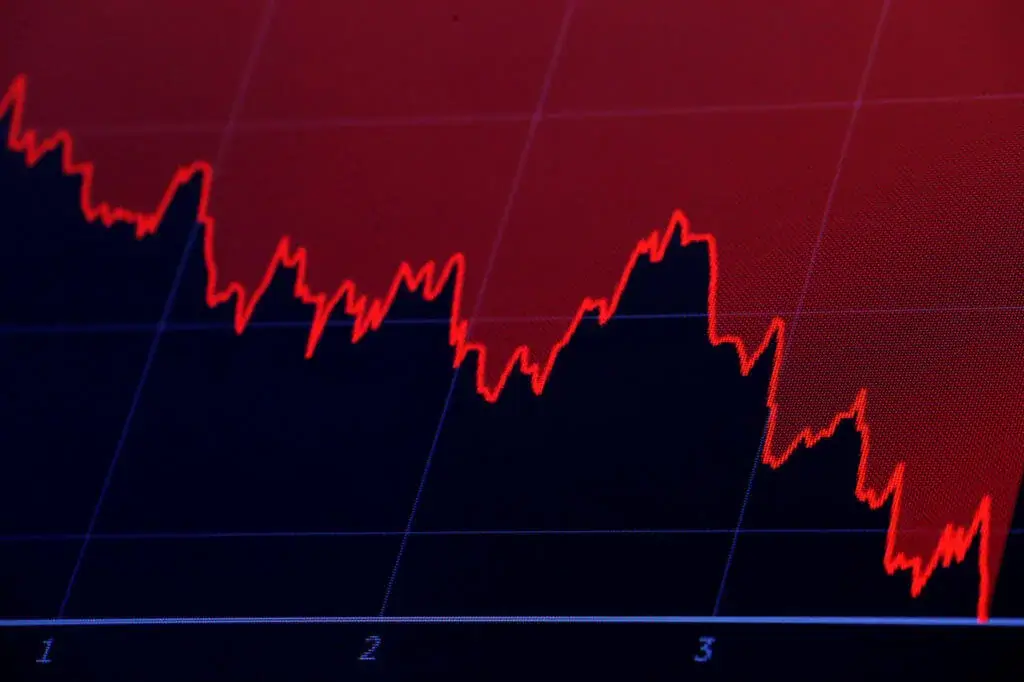Trump’s Tariffs Could Trigger Tech Industry Collapse, Warns Analyst
06.04.2025 17:40 2 min. read Alexander Stefanov
Investment analyst Dan Ives from Wedbush Securities believes that the US tech industry could face a major downturn due to tariffs imposed by President Trump.
In an interview with CNBC, Ives explained that the wide-ranging and reciprocal tariffs introduced by Trump are set to have a particularly negative impact on tech companies that depend on Chinese labor and components.
Recently, Trump signed an executive order introducing a 10% tariff on all imported goods entering the US, aimed at protecting domestic manufacturing. This order also includes specific tariffs for certain countries, resulting in a combined 54% tariff on Chinese imports.
Ives pointed out that this move forces US tech giants like Apple to reconsider their operational strategies, as they face the risk of higher production expenses. He warned that the situation could escalate into a severe economic crisis if the tariffs remain, emphasizing that the political rhetoric does not match the complex reality of shifting global supply chains.
According to Ives, companies with significant exposure to China, including Nvidia and other semiconductor manufacturers, are now experiencing heightened investor anxiety similar to the early days of the COVID-19 pandemic in March 2020.
To cope with rising costs, Ives predicts that tech companies may increase prices, which would ultimately reduce consumer demand. He estimates that if the tariffs persist, the resulting cost increases could lead to a 15% to 20% decline in demand.
Ultimately, Ives argues that consumers will bear the financial burden, as higher costs for goods like iPhones and other electronics will inevitably be passed on to buyers. He suggests that despite debates over tariffs, it will be ordinary Americans who end up paying more for everyday tech products.
-
1
UK Regulators Unveil PISCES – A New Era for Private Share Trading
11.06.2025 15:00 2 min. read -
2
Trump Turns 79 With Billions in Crypto and a $45M Parade
14.06.2025 22:00 2 min. read -
3
Polygon Breaks from Decentralization as Sandeep Nailwal Assumes Full Control
11.06.2025 20:00 2 min. read -
4
Nvidia CEO Urges UK to Invest in AI Infrastructure or Risk Falling Behind
10.06.2025 9:00 1 min. read -
5
KuCoin Plants Its Flag in Bangkok With a Licensed Thai Exchange
14.06.2025 13:00 1 min. read
Vitalik Buterin Warns Digital ID Projects Could End Pseudonymity
Ethereum co-founder Vitalik Buterin has voiced concerns over the rise of zero-knowledge (ZK) digital identity projects, specifically warning that systems like World — formerly Worldcoin and backed by OpenAI’s Sam Altman — could undermine pseudonymity in the digital world.
What Are the Key Trends in European Consumer Payments for 2024?
A new report by the European Central Bank (ECB) reveals that digital payment methods continue to gain ground across the euro area, though cash remains a vital part of the consumer payment landscape — particularly for small-value transactions and person-to-person (P2P) payments.
History Shows War Panic Selling Hurts Crypto Traders
Geopolitical conflict rattles markets, but history shows panic selling crypto in response is usually the wrong move.
At Least Five Law Firms Target Former Strategy Over Misleading BTC Risk Disclosures
Bitcoin-focused investment firm Strategy Inc. (formerly MicroStrategy) is facing mounting legal pressure as at least five law firms have filed class-action lawsuits over the company’s $6 billion in unrealized Bitcoin losses.
-
1
UK Regulators Unveil PISCES – A New Era for Private Share Trading
11.06.2025 15:00 2 min. read -
2
Trump Turns 79 With Billions in Crypto and a $45M Parade
14.06.2025 22:00 2 min. read -
3
Polygon Breaks from Decentralization as Sandeep Nailwal Assumes Full Control
11.06.2025 20:00 2 min. read -
4
Nvidia CEO Urges UK to Invest in AI Infrastructure or Risk Falling Behind
10.06.2025 9:00 1 min. read -
5
KuCoin Plants Its Flag in Bangkok With a Licensed Thai Exchange
14.06.2025 13:00 1 min. read


